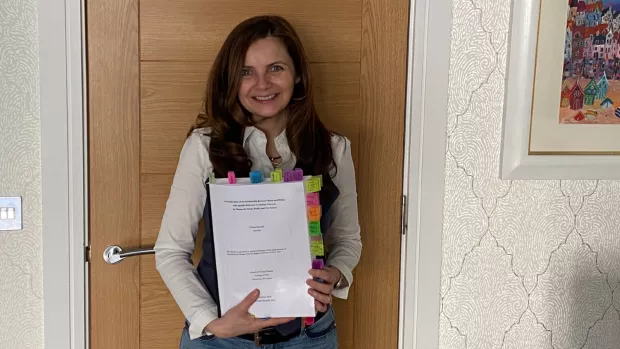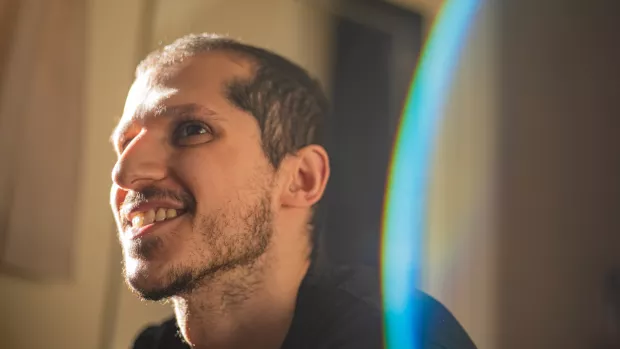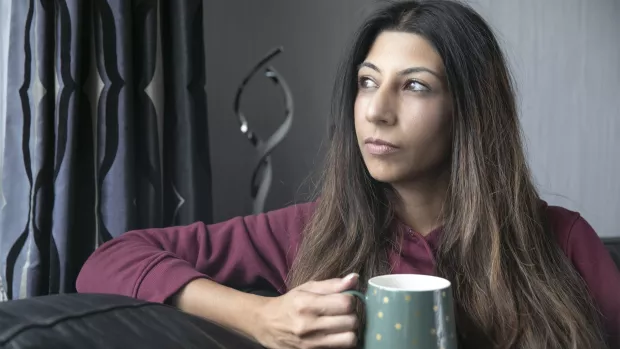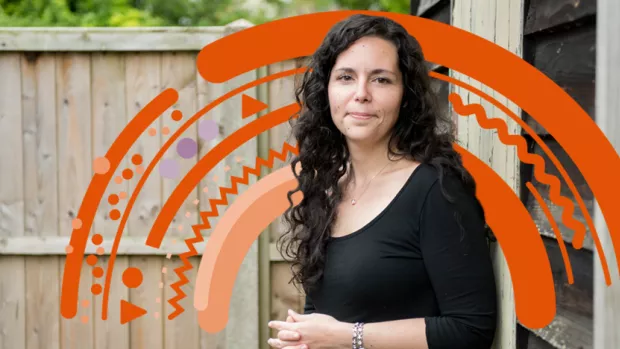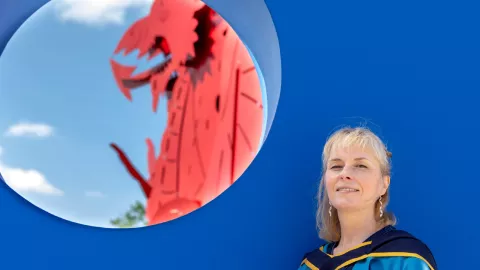
Studying at university with MS – Beck’s experience
Beck was diagnosed with relapsing MS in 2008. She started studying to find a positive focus and now has two degrees. Beck shares her journey as a student with MS.
In April 2008, my life ended. I’d been ill for two years, had a cast-iron diagnosis for over a year, but now was when it hit me: I’m done for.
Wow! Dramatic enough? Talk about self-pitying, thinking my life was over at the grand old age of 31. All that’d happened was I’d had to stop working. And was exhausted all the time. And couldn’t concentrate after midday. And had lost my sense of balance. And was in constant pain. And, and, and.
The reality was I’d had an all-too-familiar first few years of living with relapsing remitting MS. But as I didn’t know anyone else in the same boat, I took to my bed and slept all the time. Which wasn’t a great deal of fun for my husband.
A nudge in a new direction
In early 2009, my husband mentioned that perhaps I could do an online course of some kind. (He'd had to live with me behaving this way for almost a year.)
Maybe if I focussed on learning something – anything – it might help? Logically, this made no sense to me. I was already shattered all the time. How was I meant to exert myself on anything?
But, annoyingly, he was correct. I needed something positive to focus on. Instead of easing myself gently into the wonderful world of online learning, I plumped for a Bachelors degree in Literature with the Open University (OU). Never let it be said I do things by half.
I’d left school aged 16 after doing my GCSEs, and failed twice to attend college to study for A Levels. So, after 15 years, I decided to force my weary brain to concentrate and learn something brand new. To be honest, it wasn’t completely new. I’d always loved writing. I’d even begun writing a ‘humorous’ account of having MS when I first became ill. But the editors I sent it to didn’t find chapters named ‘V is for Vertigo’, and ‘L is for Lumbar Puncture’ all that funny. (I wonder why?)
Feeling the fear and doing it anyway
Signing up was daunting to say the least. And I was petrified I wouldn’t be able to get the assignments completed. But with the OU it could all be done in my own time, whenever that might be on a particular day. Once it was a glorious 3 to 5.30am stint writing a poem for a tutorial later that day. Later on in the degree, it was at 11.45pm. I was finishing an assignment to be submitted by midnight while bottle-feeding my baby daughter.
Each piece of work I submitted gave me an enormous sense of achievement and pride.
Crucially, it gave me a distraction from my health problems. By doing something that was (quite often) mentally exhausting, my body seemed to be getting a break. Magic!
My hard work paid off
I graduated with a 2:1 Bachelor’s degree in Literature in 2015 and felt fairly happy. For a few years. Then, I began to crave that structure again. And my brain certainly needed something good to focus on.
So with a great deal of support from the OU, I began a Masters degree in Creative Writing. And it was wonderful. In no way does that mean I didn’t get into an absolute state more than once. I found my brain wouldn’t work and I’d have to take a few study breaks to get over MS-related problems.
I was still plagued with anxieties and doubts about my own writing and my own abilities. And all this was through covid! But I never felt like I was on my own.
I had such great support from the OU, from my tutors, my fellow students, my family, and I got there.
Somehow, I got a first! And on Friday 27 May 2022, I got to walk across that stage, and I officially graduated.
Inspiring other people
The best bit is, I didn’t graduate in spite of my MS – I graduated because of it. Had I not become ill, I would’ve still been working with the idea of getting a degree – a pipe-dream, shoved to the back of my mind. It’s only through having to finish work that I ended up seeing what I could do.
My poor, tired, scar-covered brain proved to be ever so slightly brilliant
It might’ve needed more down-time than others, but it still worked, and worked well. And that isn’t all… the OU selected me to be one of their inspirational alumni. They share my story with others who are wondering if they’re capable of achieving their dreams. I believe they are. And so are you.

